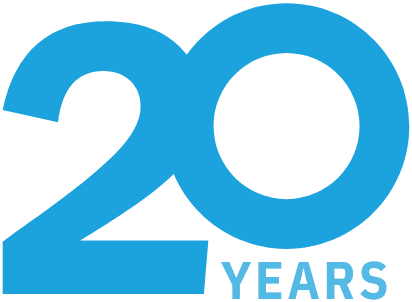Every day organizations across Canada create millions of documents, which require disposal at the end of their lifecycle. How these documents are disposed of can put businesses at risk. Even with office paper shredders or third-party shredding services, employees regularly dispose of confidential data improperly, which can lead to a damaging information leak or substantial fines for non-compliance.
Having an effective, convenient and secure paper shredding process eliminates any security and privacy compliance issues related to document disposal within your organization. However, many businesses are unaware that their information destruction processes are inadequate, which increases organizational risk.
Here are three common reasons why your current shredding process could be failing your business:
Reason 1: Lack of an Information Destruction Policy
If your organization does not have a clearly defined information destruction policy, your paper shredding process – no matter the method – will never fully protect your company from a serious security breach. That’s because this formal, company-wide, written policy provides employees with specific directives of how and when to dispose of documents at the end of their lifecycle. A policy also specifies the types of information that must be shred to ensure that confidential documents are properly and securely destroyed 100% of the time.
Without a policy in place, there’s more room for error, which leaves your organization vulnerable to fraud, corporate espionage and identity theft. Even a simple misjudgment, such as disposing of confidential material in a trash can or recycling bin, can lead to a proprietary information leak, resulting in lost revenue, loss of market share or a damaged reputation.
A document destruction policy also promotes responsibility for all since every person, regardless of their title or position, plays a vital role in protecting an organization’s information security. By providing employees with proper steps and clear destruction parameters, they are empowered to succeed while your confidential business data remains secure.
Reason 2: Lack of Privacy Act Compliance

This act is the federal law in Canada that establishes rules for how personal information about individuals, including employees, clients and/or patients, is collected, used and disclosed. To remain compliant with PIPEDA, your policy must also cover guidelines and procedures for collecting and retaining information, as well as when to dispose of data and how.
Additionally, all organizations must appoint a Privacy Officer or Security Officer to remain compliant with the privacy act. This designated individual must be employed by your organization and their role is to encourage company-wide compliance with security policies and procedures, as well as any other provisions of PIPEDA.
Without having a document destruction policy in place or a designated Privacy Officer, your business could be subject to hefty fines imposed by PIPEDA.
Reason 3: Lack of Employee Training
Did you know that 93% of companies find that their employees are disposing of confidential documents inappropriately, even when there is a paper shredding program in place? A common reason for this lack of compliance is that organizations are providing little to no employee training about important information security procedures and policies.
However, regular security training is critical to lowering organizational risk. After all, your current paper shredding process is only as strong as its weakest link. If employees are unknowingly throwing sensitive materials into the trash can and recycling bin or your paper shredding process is inconvenient and time-consuming, your company is at greater risk for an information breach.
To improve your document disposal program, routine employee training is essential to ensure continued compliance, along with periodic audits, frequent reminders and ongoing education. Employees who are trained to identify risks can also limit potentially damaging situations to your organization, its stakeholders and reputation. The more you invest in your employees with training, the more information security becomes rooted in your organization by people who understand the value and vulnerabilities of confidential data.
Improve Your Destruction Procedures with Blue-Pencil
If your current paper shredding process is failing your business, our team at Blue-Pencil can help you put an effective document destruction program in place that’s secure, compliant and backed with training.
Blue-Pencil will work with you to create and implement an information destruction policy, which gives your employees specific instructions for document destruction. We also provide shredding compliance video training, so your employees know what they need to do when they have documents to shred. The completion of these two steps, along with appointing a Privacy Officer, ensures PIPEDA compliance.
From there, the document destruction process is simple and convenient. Any time your employees have unneeded documents, they can deposit them into locked consoles, which are collected on a regular schedule by a Blue-Pencil representative to be destroyed on-site in a mobile shredding truck. At the end of your service, you will receive a Certificate of Destruction, which proves that all paper and media types have been properly destroyed in compliance with privacy laws.
Take Our Document Security Risk Assessment
Taking Blue-Pencil’s Document Security Risk Assessment is a quick and effective way to identify your workplace’s biggest security and compliance gaps. It only takes two minutes to complete.

